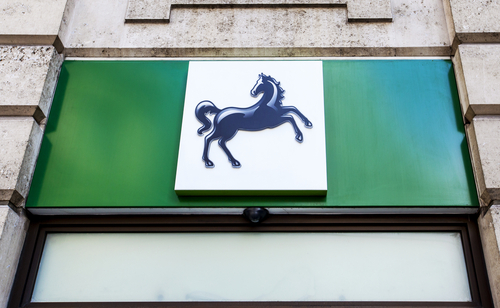Experienced Investor
Lloyds back in private hands: should you buy into banks?

The government has sold its final stake in bailed out Lloyds Banking Group, bringing it back into full private ownership.
During the financial crisis, the government acquired a 43% share of Lloyds after injecting £20.3bn to prop up the institution.
It began to sell its shares in Lloyds Banking Group in September 2013 and in April this year, the Treasury announced it had recovered £20.4bn of taxpayers’ money offloading its holdings while receiving dividend payments.
However, the recouped amount doesn’t include the cost of borrowing the money to fund the bailout.
Laith Khalaf, senior analyst at Hargreaves Lansdown, said: “It’s been a long and winding road back to recovery, but finally the government has sold its last stake in Lloyds, almost a decade after the taxpayer bailed the bank out. Lloyds is now back to business as usual, and the withdrawal of a large seller from the market should be positive for the share price.
“The Treasury won’t be making a song and dance about the Lloyds sale, seeing as we are in a period of purdah running up to the general election. Indeed the champagne corks should probably be kept on ice seeing as the taxpayer has only broken even on the face value of the Lloyds bailout, and is still nursing a loss if you factor in the borrowing costs associated with stumping up the money back in 2009.”
Are banks an attractive investment?
Michelle McGrade, chief investment officer at TD Direct Investing, said banks remain an attractive investment opportunity in the long-term.
She said: “Their strong balance sheets should allow them to cope with moderate negative shocks moving forward. We expect the sector to provide solid and dependable long-term capital and dividend growth for investors.
“Since the financial crisis, UK banks have been rebuilding their balance sheets and are now returning to form. The health of these businesses is reflected in their dividends, with Lloyds’ dividend yield currently at 3.64% although its share price has come under pressure recently from the government selling down its stake.
“Whether or not Lloyds’ dividend is sustainable in the long-term remains to be seen as it has a dividend cover of less than one, meaning it needs to borrow money to pay its shareholders which might not be appealing to some investors.”
McGrade added that Lloyds is the most traded stock on the TD Direct platform, which shows customers are seeking more exposure to banks, with a a 29% increase in the number of trades in banking stocks during 2016.
Khalaf said it’s an interesting coincidence that one of the UK’s top fund managers, Neil Woodford, recently bought back into Lloyds after snubbing banks as uninvestable for 14 years, just as the government is stepping out of the picture.
“For Lloyds the future looks more promising. PPI compensation is disappearing in the rear-view mirror and the bank is paying a healthy dividend to shareholders. Unlike the FTSE 100 as a whole, Lloyds is very much a bellwether of the UK economy because of all the loans it makes to businesses and consumers in this country, so its fortunes are very much shackled to domestic conditions.”
However, he says that RBS still casts a long shadow over the banking bailout too, seeing as the taxpayer funding package was twice as big, and the bank’s shares still need to double in price before the government breaks even.
“Progress has been slower at RBS because it had more problems to start with, and it’s difficult to see how the government can realistically sell off its 72% stake in the bank without taking a financial hit,” he said.